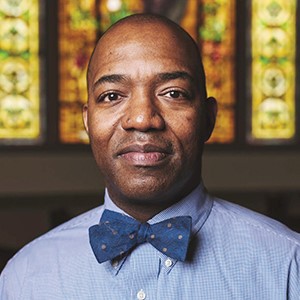

January Questions and Answers
If God unconditionally loves everyone, how could He kill so many people in the Old Testament?
I often pray Scriptures like John 6:44 and 2 Timothy 2:25–26 over my lost children who are far from God. Is there a point in praying to the Lord for them if God chooses who He draws to Himself?
Do we need to follow or obey church traditions that aren’t found in the Bible?
If God unconditionally loves everyone, how could He kill so many people in the Old Testament?
As Creator, God has power over the life and death of all He has created. From all eternity God has marked out every day each person will live (Ps. 139:16). As humanity’s Judge, He has the authority to call us to account for our actions. He is the “judge of all the earth” and His decisions are always right (Gen. 18:25).
In the Old Testament, the Lord did command Israel to destroy people whose idolatrous practices showed that they did not know or follow God. As a righteous Judge, God deemed them deserving of death just like every sinner is deserving of death (Rom. 3:23). “There is no one righteous, not even one” (Rom. 3:10). The punishment for sin is death, and these deaths came at the hands of Israel so that the idolatrous practices of these nations would not ensnare God’s people (Deut. 7:4, 25).
This may seem difficult for us to reconcile with our understanding that God is a God of love (1 John 4:16). But God's love is clearly evident throughout both the Old and New Testaments (Deut. 7:9; Ps. 36:7; Jer. 32:18; Zeph. 3:17; John 3:16; Rom. 5:8). God’s freedom to remove people from this world by death reveals His power as Our Righteous Judge, but it is not an indication of His lack of love which provided the only way for our salvation (John 3:16).
I often pray Scriptures like John 6:44 and 2 Timothy 2:25–26 over my lost children who are far from God. Is there a point in praying to the Lord for them if God chooses who He draws to Himself?
The salvation of our children is near and dear to the heart of every Christian parent. We all hope to see our children, and all our loved ones, knowing Jesus and thriving in the power of the Holy Spirit. We want them to enjoy the assurance of salvation and a relationship with Christ. The deepest cry of a parent’s heart is that the Lord would show our children His salvation.
The Bible does teach that God draws people to Himself in salvation (John 6:37). Scripture also teaches that those who hear the gospel are responsible for their reaction (John 3:18). “In the Bible, divine sovereignty and human responsibility are not enemies,” theologian J. I. Packer explains. “They are not uneasy neighbors; they are not in an endless state of cold war with each other. They are friends, and they work together.”
It is a comfort to know that God has invited us to bring all of our concerns to Him (1 Peter 5:7). Praying for the salvation of our children, we ask the God of mercy to draw our unsaved children to Himself. But we must also remember to leave the how and when of their salvation to God alone.
Do we need to follow or obey church traditions that aren’t found in the Bible?
Churches observe two kinds of traditions. Some are practices commanded by Scripture. As Paul said to the Corinthians, “I praise you for remembering me in everything and for holding to the traditions just as I passed them on to you” and “For I received from the Lord what I also passed on to you” (1 Cor. 11:2, 23). These have sometimes been called “great” traditions. The Lord’s Supper would be considered one of these great traditions that are an integral part of the church.
The other kind of traditions are practices that are a matter of local custom. They might be described as “little” traditions. Adopted by local churches or denominations, little traditions may vary based on ethnicity, culture, and geography. They may influence which days we meet, such as Good Friday or Maundy Thursday, whether we have one or multiple Sunday School hours or have an evening Sunday service. Sometimes the church’s great traditions are personalized by a congregation’s local customs which shape how the Lord’s Supper is arranged and served, whether we sing only hymns or only Psalms, and if we repeat a confession or creed during the service. A church’s little traditions or local customs have value, but they are not practices that every church must follow in the same manner.
Whether or not we follow a church’s traditions is a matter of conscience. What Scripture commands must be obeyed. When a practice is not prescribed by Scripture, believers are free to follow, as long as it does not conflict with what God has commanded elsewhere (Rom. 12:10; Eph. 4:2; Heb. 13:17).




